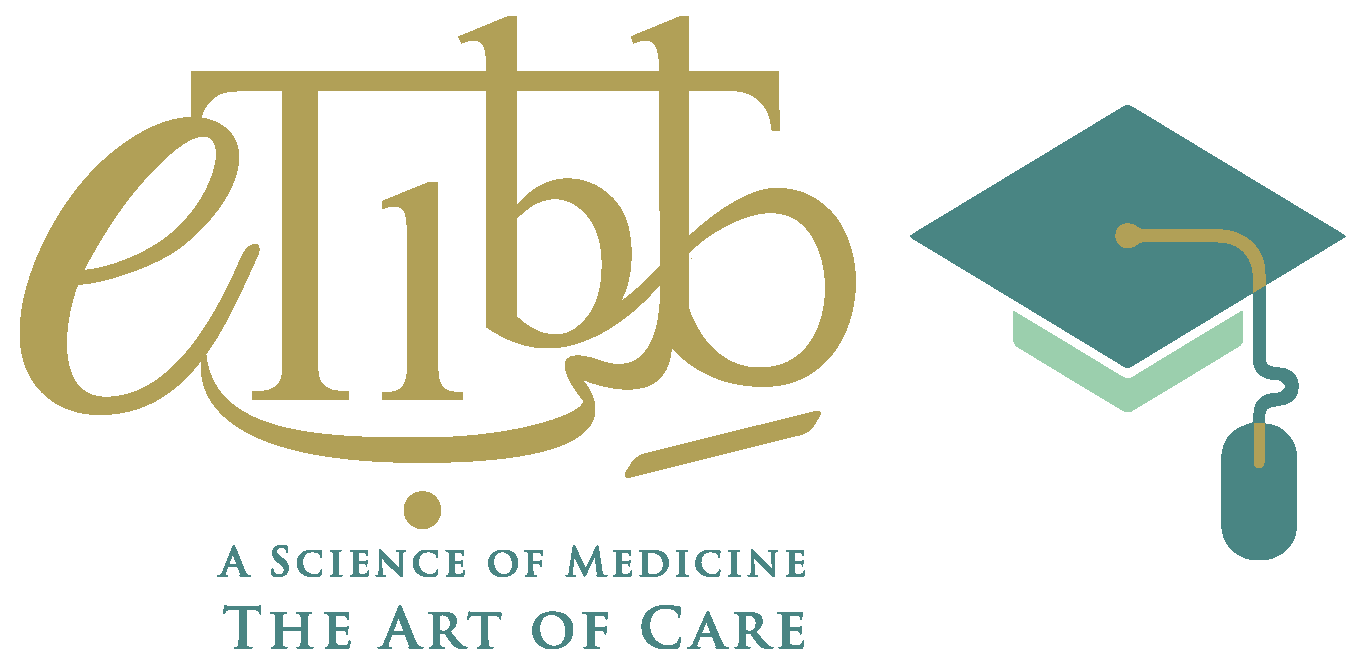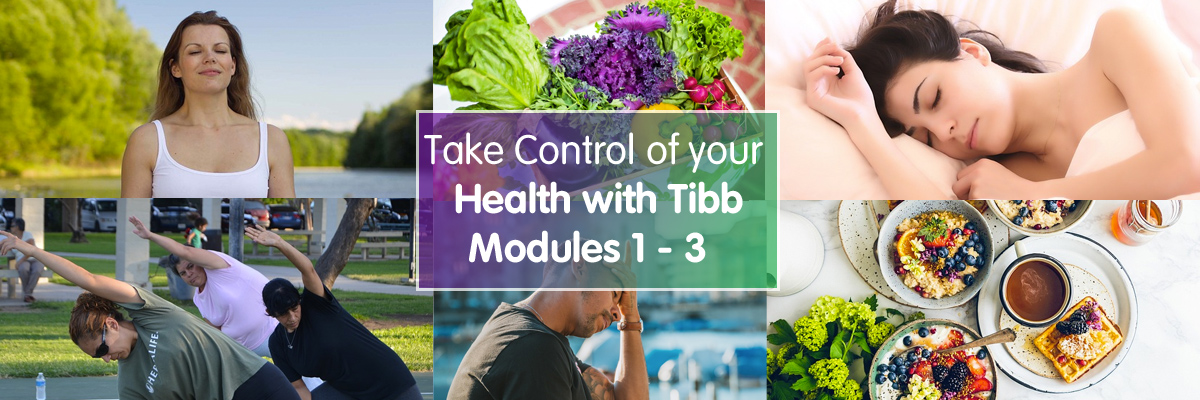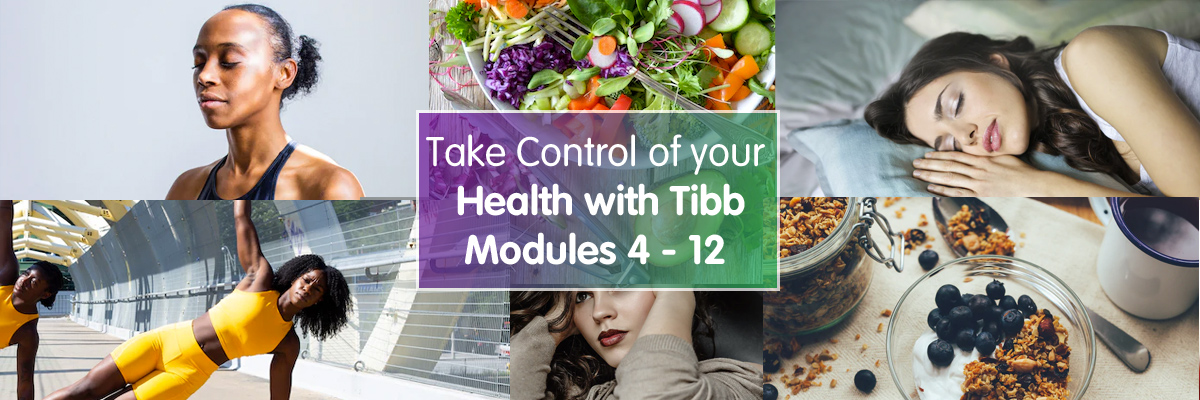
Book an Online Interview with one of our Tibb Doctors:
Holistic Tibb Approach
Temperamental Evaluation
Lifestyle Assessment & Management
Personalised Lifestyle Programme
One on one discussion with qualified and experienced Tibb Practitioner
COST: R180.00 (Approx. $10)
TIME: 45 MINUTES
Any queries or technical issues can be emailed to: info@etibb.co.za

To streamline and gain maximum benefit from the interview session, the individual needs to be aware of the concepts in Tibb, and therefore we recommend first completing our etibb course – Tibb Healthy Living (Tibb Online Interview is included after successful completion of the course).
Alternatively, please read a brief overview of the holistic approach of Tibb found in our Tibb Treatment Flyer.
Tibb Online Interview Process
- Prior to your Tibb Online Interview, you are required to complete both a Temperamental Evaluation and a Lifestyle Assessment. This will assist in determining your temperamental combination and provide an overview of which lifestyle factors are contributing to disturbing the homeostasis within the body and causative in the development of imbalances.
- During the Tibb Online Interviewsession we will be able to confirm your temperamental combination and provide Lifestyle Management as per the outcome of the interview. We will then discuss in more detail your Personalised Lifestyle Program based on your temperamental combination.
- Should you require any additional supportive treatment, we will recommend booking a consultation at the Tibb Treatment Centre or with a local Tibb practitioner.
- Please complete each tab which will guide you through the temperamental evaluation, lifestyle assessment, and booking
- Please note*
- All information submitted will be handled with confidentiality
- Booking dates and times are in Local South African Time and are subject to availability
Temperament is a combination of a person’s physical, mental, emotional, and spiritual side. Although each person is as unique as his/her fingerprint, Tibb divides people into four broad categories, Sanguinous, Phlegmatic, Melancholic and Bilious with respective qualities of heat, coldness, moistness, and dryness. Whilst each person has attributes of all four temperamental types, every person has a dominant temperament, a sub-dominant temperament, less of the third and the least amount of the fourth temperament.
The picture adjacent describes temperament and qualities and illustrates that a person with a combination of a Sanguinous/Bilious temperament will have an overall dominant quality of heat less of moistness and dryness and the least amount of coldness. Similarly, the Phlegmatic/Melancholic temperament will have an overall dominant quality of coldness, less of moistness and dryness and the least amount of heat.
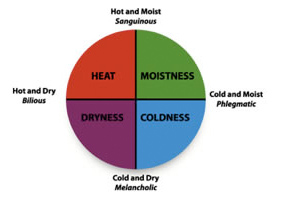
Therefore, each individual has an overall qualitative state made-up of the four qualities with one dominant quality and an opposite least quality. Changes to this ideal qualitative state of an individual especially an increase in the dominant quality will have a negative effect on the individual’s health whereas an increase in the opposite least quality will be beneficial.
As heat is the dominant quality associated with the Sanguinous/Bilious combination, an excess of heat will negatively affect this individual the most and to the greatest extent. Similarly, an excess of coldness will negatively affect an individual with a Phlegmatic/Melancholic temperamental combination. This is easy to understand knowing that a person with a Sanguinous/Bilious temperament is uncomfortable during summer and having spicy foods whereas the Phlegmatic/Melancholic person needs an extra jersey to keep warm during winter.
Being aware of the dominant quality of a person’s temperamental combination allows individuals to make positive choices in lifestyle that will be beneficial to their health with an improved Quality of Life. The practice of Tibb revolves around the art and skill of identifying a person’s individual temperamental combination and adhering to a Personalised Lifestyle Programme for optimum health and wellbeing.
Having provided the above information about the four temperamental types, listed below is a table that can be completed, to identifying an individual’s or your dominant and sub-dominant temperament. When completing the table, the following needs to be noted:
- Remember each person is a combination of all four temperaments, with a dominant/sub-dominant temperament – next to each other.
- Physical appearance should be as in the early 20’s – as age and certain medication (cortisone) can change physical appearance.
- Do not confuse habits with tendencies. Certain habits may be acquired due to circumstances.
- Personality and Emotional traits are important criteria and should be noted whilst being relaxed, and also how friends and family members see and know you.
- When determining your temperament, base it on how you really are and not how you wish you were.
- Please provide an answer for each specific category, choosing the single best answer for your temperament.
- The column containing the most ticks is the dominant temperament whereas the column with the second most ticks will be the sub-dominant temperament.
As dryness is the dominant quality associated with your temperamental combination, an increase in dryness from the Six Lifestyle Factors will negatively affect you to the greatest extent. An increase in heat and coldness will also affect you, but to a lesser extent, whereas an increase in the quality of moistness will have the least negative effect on you. An increase in dryness can be as a result of: The illnesses that this combination are inclined to are those associated with the dominant Bilious Temperament: To a lesser extent this combination will also be inclined to illnesses of the Melancholic Temperament: As dryness is the dominant quality associated with your temperamental combination an excess of dryness in each of the lifestyle factors will have a negative effect on you. Ideally your combination should eat mostly Cold & Moist foods, followed by Hot & Moist foods, less of Cold & Dry foods, and the least amount of Hot & Dry foods. Listed below are the four different diet charts Fresh air and a cool, properly ventilates environment are most ideal. Recommended breathing exercises include the Tibb Deep Rhythmic breathing, the Tibb Mental/Emotional breathing and the Tibb Slow and Deep breathing exercises: This exercise is prescribed for all temperamental types. Try doing it on a regular basis, preferably in the early morning. This exercise is also prescribed for all temperamental types. It creates harmony in the two hemispheres of the brain. Do this exercise early in the morning or late afternoon. This exercise has a calming effect and therefore is ideal in meditation exercises for all temperamental types, especially for people with a dominant/sub-dominant bilious temperament. Sit on the floor in a squatting position with your hands on your thighs or in the ‘lotus’ position, keeping a straight back in both cases. If neither position is possible, then lie on the floor or sit in a comfortable chair, Close your eyes focus on breathing. Take slow and deep breaths, breathing in and out through the nose, distending and filling the stomach. Continue breathing this way for 5 minutes. Excessive movement and strenuous exercise is not advisable. Exercise in the early morning and late afternoon. Yoga is advisable. Include in the choice of physical exercise, the Tibb Walking Exercise: Warm up by walking normally, swinging the your gently. Do this for about 2 minutes initially. Then walk briskly, raising your legs and swinging your arms firmly. Do this for about 5 minutes. Cool down by walking normally, as in the warmup. Do this for about 2 minutes. Do these exercises daily, but each week increase the amount of time you spend doing them until you reach a maximum of 25 minutes per session. A good night’s sleep of 6-8 hours’ is advisable. Lack of sleep (less than five hours on a continuous basis) and late nights will negatively affect you. Extreme emotions – excessive worries, sadness, loneliness and overly philosophical thinking are the emotional excesses of this temperamental combination and should be managed with breathing and meditation exercises. A 5-10-minute relaxation break after lunch is beneficial. The following meditation exercises are advised together with the Tibb Slow and Deep Breathing exercise, the Tibb Heart Meditation Exercise and the Tibb Pineal Body Meditation Exercise. This exercise has a calming effect and therefore is ideal in meditation exercises for all temperamental types, especially for people with a dominant/sub-dominant bilious temperament. Laxatives should be considered. A regular high-fibre diet should be adopted to keep the colon clear. As heat is the dominant quality associated with your temperamental combination, an increase in heat from the Six Lifestyle Factors will negatively affect you to the greatest extent. An increase in moistness and dryness will also affect you, but to a lesser extent, whereas an increase in the quality of coldness will have the least negative effect on you. An increase in heat can be as a result of: very hot weather and environment hot food and drink strenuous exercise The illnesses that this combination are inclined to are those associated with the dominant Bilious Temperament: Bronchitis Endometriosis To a lesser extent this combination will also be inclined to illnesses of the Sanguinois Temperament: Congestive headache Diabetes Good health is achieved by maintaining your ideal temperament. An excess of heat in each of the lifestyle factors will most negatively affect you, faster than changes in the other qualities. You need to be aware of this at all times and control the level of heat in your body. Ideally your combination should eat mostly Cold & Moist foods, followed by Cold & Dry foods, less of Hot & Moist foods, and the least amount of Hot & Dry foods. Listed below are the four different diet charts This exercise is prescribed for all temperamental types. Try doing it on a regular basis, preferably in the early morning. This exercise is also prescribed for all temperamental types. It creates harmony in the two hemispheres of the brain. Do this exercise early in the morning or late afternoon. This exercise has a calming effect and therefore is ideal in meditation exercises for all temperamental types, especially for people with a dominant/sub-dominant bilious temperament. This exercise has a calming effect and therefore is ideal in meditation exercises for all temperamental types, especially for people with a dominant/sub-dominant bilious temperament. As heat is the dominant quality associated with your temperamental combination, an increase in heat from the Six Lifestyle Factors will negatively affect you to the greatest extent. An increase in moistness and dryness will also affect you, but to a lesser extent, whereas an increase in the quality of coldness will have the least negative effect on you. An increase in heat can be as a result of: very hot weather and environment hot food and drink strenuous exercise The illnesses that this combination are inclined to are those associated with the dominant Bilious Temperament: Bronchitis Endometriosis To a lesser extent this combination will also be inclined to illnesses of the Sanguinois Temperament: Congestive headache Diabetes Good health is achieved by maintaining your ideal temperament. An excess of heat in each of the lifestyle factors will most negatively affect you, faster than changes in the other qualities. You need to be aware of this at all times and control the level of heat in your body. Ideally your combination should eat mostly Cold & Moist foods, followed by Cold & Dry foods, less of Hot & Moist foods, and the least amount of Hot & Dry foods. Listed below are the four different diet charts This exercise is prescribed for all temperamental types. Try doing it on a regular basis, preferably in the early morning. This exercise is also prescribed for all temperamental types. It creates harmony in the two hemispheres of the brain. Do this exercise early in the morning or late afternoon. This exercise has a calming effect and therefore is ideal in meditation exercises for all temperamental types, especially for people with a dominant/sub-dominant bilious temperament. This exercise has a calming effect and therefore is ideal in meditation exercises for all temperamental types, especially for people with a dominant/sub-dominant bilious temperament. As moistness is the dominant quality associated with your temperamental combination, an increase in moistness from the Six Lifestyle Factors will negatively affect you to the greatest extent. An increase in heat and coldness will also affect you, but to a lesser extent, whereas an increase in the quality of dryness will have the least negative effect on you. An increase in moistness can be as a result of: The illnesses that this combination are inclined to are those associated with the dominant Sanguinous Temperament: To a lesser extent this combination will also be inclined to illnesses of the Phlegmatic Temperament: Good health is achieved by maintaining your ideal temperament. An excess of moistness in each of the lifestyle factors will negatively affect you more than other conditions. You need to be aware of this at all times and control the level of moistness in your body. Ideally your combination should eat mostly Cold & Dry foods, followed by Hot & Dry foods, less of Cold & Moist foods, and the least amount of Hot & Moist foods. Listed below are the four different diet charts This exercise is prescribed for all temperamental types. Try doing it on a regular basis, preferably in the early morning. This exercise is also prescribed for all temperamental types. It creates harmony in the two hemispheres of the brain. Do this exercise early in the morning or late afternoon. This exercise has a calming effect and therefore is ideal in meditation exercises for all temperamental types, especially for people with a dominant/sub-dominant bilious temperament. A 10-15-minute walk after supper is beneficial. Include in the choice of physical exercises, the Tibb Walking Exercise and the Tibb Jogging Exercise: Select a protected time and space, free from interruptions. This exercise has a cooling effect, so is ideal for people with a bilious or sanguinous temperament. Overview As moistness is the dominant quality associated with your temperamental combination, an increase in moistness from the Six Lifestyle Factors will negatively affect you to the greatest extent. An increase in heat and coldness will also affect you, but to a lesser extent, whereas an increase in the quality of dryness will have the least negative effect on you. An increase in moistness can be as a result of: The illnesses that this combination are inclined to are those associated with the dominant Phlegmatic Temperament: To a lesser extent this combination will also be inclined to illnesses of the Sanguinous Temperament: Good health is achieved by maintaining your ideal temperament. An excess of moistness in each of the lifestyle factors will most negatively affect you and affect you quicker than any of the other factors. You need to be aware of this at all times and control the level of moistness in your body. Ideally your combination should eat mostly Hot & Dry foods, followed by Cold & Dry foods, less of Hot & Moist foods, and the least amount of Cold & Moist foods. Listed below are the four different diet charts Weather, environment, work and leisure activities that increase cold and moistness – will negatively affect you. Because of the low heat, phlegmatic people are particularly vulnerable to a cold environment as well as cold and rainy weather. Heat management by wearing appropriate clothing and seeking a warm environment during cold and rainy times is of utmost importance. The bedroom may be heated electrically, with an electric blanket when needed. Recommended breathing exercises include the Tibb Deep Rhythmic breathing, the Tibb Mental/Emotional breathing and the Tibb Fast and Deep breathing exercises: This exercise is prescribed for all temperamental types. Try doing it on a regular basis, preferably in the early morning. This exercise is also prescribed for all temperamental types. It creates harmony in the two hemispheres of the brain. Do this exercise early in the morning or late afternoon. This exercise has a heating effect, so is ideal for people with a phlegmatic or melancholic temperament Exercise on a daily basis will positively affect you. At night a brisk walk after supper is very beneficial. Include in the choice of physical exercise, the Tibb Jogging Exercise: Retiring early for 8 hours of sleep and rising before sunrise is advisable to avoid an excess of phlegm. Sleeping during the daytime should be avoided especially 1 hour before sunset as this aggravates the phlegm and leads to heaviness of the head and sinus congestion. Fear, shyness and depression are the emotional excesses of the phlegmatic temperamental combination and should be managed with breathing and meditation exercises. Actively try and be an atmosphere free from stress fear and worries. The following meditation exercises are advised together with the Tibb Slow and Deep Breathing exercise, the Tibb Heart Meditation Exercise and the Tibb Pineal Body Meditation Exercise. This exercise has a calming effect and therefore is ideal in meditation exercises for all temperamental types, especially for people with a dominant/sub-dominant bilious temperament. Laxatives should be taken to keep the bowels clear. As coldness is the dominant quality associated with your temperamental combination, an increase in coldness from the Six Lifestyle Factors will negatively affect you to the greatest extent. An increase in moistness and dryness will also affect you, but to a lesser extent, whereas an increase in the quality of heat will have the least negative effect on you. An increase in coldness can be as a result of: The illnesses that this combination are inclined to are those associated with the dominant Phlegmatic Temperament: To a lesser extent this combination will also be inclined to illnesses of the Melancholic Temperament: Good health is achieved by maintaining your ideal temperament. An excess of coldness in each of the lifestyle factors will most negatively affect you and affect you faster than any of the other factors. Be aware of this at all times and control the level of coldness in your body. Ideally your combination should eat mostly Hot & Dry foods, followed by Hot & Moist foods, less of Cold & Dry foods, and the least amount of Cold & Moist foods. Listed below are the four different diet charts Managing heat levels by wearing appropriate clothing and seeking a warm environment is of utmost importance. If necessary, heat the bedroom with an electric blanket when needed. Recommended breathing exercises include the Tibb Deep Rhythmic breathing, the Tibb Mental/Emotional breathing and the Tibb Fast and Deep breathing exercises: This exercise is prescribed for all temperamental types. Try doing it on a regular basis, preferably in the early morning. This exercise is also prescribed for all temperamental types. It creates harmony in the two hemispheres of the brain. Do this exercise early in the morning or late afternoon. This exercise has a heating effect, so is ideal for people with a phlegmatic or melancholic temperament Exercise on a daily basis will positively affect you. At night a brisk walk after supper is very beneficial. Include in the choice of physical exercise, the Tibb Jogging Exercise: Retiring early for 8 hours of sleep and rising before sunrise is advisable to avoid an excess of phlegm. Sleeping during the daytime should be avoided. Fear, shyness and depression are the emotional excesses of the phlegmatic temperamental combination and should be managed with breathing and meditation exercises. Actively try and be in an atmosphere free from stress fear and worry. This exercise has a calming effect and therefore is ideal in meditation exercises for all temperamental types, especially for people with a dominant/sub-dominant bilious temperament. Laxatives should be taken to keep the bowels clear. Massage is also advised. As heat is the dominant quality associated with your temperamental combination, an increase in heat from the Six Lifestyle Factors will negatively affect you to the greatest extent. An increase in moistness and dryness will also affect you, but to a lesser extent, whereas an increase in the quality of coldness will have the least negative effect on you. An increase in heat can be as a result of: The illnesses that this combination are inclined to are those associated with the dominant Sanguinous Temperament: To a lesser extent this combination will also be inclined to illnesses of the Bilious Temperament: Good health is achieved by maintaining your ideal temperament. An excess of heat in each of the lifestyle factors will negatively affect you (more than changes in other conditions). Be aware of this at all times and control the level of heat in your body. Ideally your combination should eat mostly Cold & Dry foods, followed by Cold & Moist foods, less of Hot & Dry foods, and the least amount of Hot & Moist foods. Listed below are the four different diet charts This exercise has a calming effect and therefore is ideal in meditation exercises for all temperamental types, especially for people with a dominant/sub-dominant bilious temperament. This exercise is prescribed for all temperamental types. Try doing it on a regular basis, preferably in the early morning. This exercise is also prescribed for all temperamental types. It creates harmony in the two hemispheres of the brain. Do this exercise early in the morning or late afternoon. This exercise has a calming effect and therefore is ideal in meditation exercises for all temperamental types, especially for people with a dominant/sub-dominant bilious temperament. As coldness is the dominant quality associated with your temperamental combination, an increase in coldness from the Six Lifestyle Factors will negatively affect you to the greatest extent. An increase in moistness and dryness will also affect you, but to a lesser extent, whereas an increase in the quality of heat will have the least negative effect on you. An increase in coldness can be as a result of: The illnesses that this combination are inclined to are those associated with the dominant Melancholic Temperament: To a lesser extent this combination will also be inclined to illnesses of the Phlegmatic Temperament: Good health is achieved by maintaining your ideal temperament. An excess of coldness in each of the lifestyle factors will most negatively affect you and affect you faster than changes in other conditions. Be aware of this at all times and control the level of coldness in your body. Ideally your combination should eat mostly Hot & Moist foods, followed by Hot & Dry foods, less of Cold & Moist foods, and the least amount of Cold & Dry foods. Listed below are the four different diet charts Weather, environment, work and leisure activities that increase coldness and dryness will negatively affect you. In autumn keep away from the cold of night and the midday heat. Dewy conditions during autumn, late winter and between midnight and 6:00am also aggravates this temperamental combination. Outings or change of environment (picnics, etc.) during times other than those mentioned every 2-3 months is beneficial. Protect yourself from dry weather by applying a moisturizer, cream or oil (olive oil) to the skin. Recommended breathing exercises include the Tibb Deep Rhythmic breathing, the Tibb Mental/Emotional breathing and the Tibb Fast and Deep breathing exercises: This exercise is prescribed for all temperamental types. Try doing it on a regular basis, preferably in the early morning. This exercise is also prescribed for all temperamental types. It creates harmony in the two hemispheres of the brain. Do this exercise early in the morning or late afternoon. This exercise has a heating effect, so is ideal for people with a phlegmatic or melancholic temperament A 10-15-minute walk after supper is beneficial. Yoga is advisable. Include in the choice of physical exercise, the Tibb Jogging Exercise: Get to bed early, around 22:00 for 6-8 hours’ sleep. Excessive walking during the night will negatively affect you. Extreme emotions – excessive worries, sadness, loneliness and overly philosophical thinking are the emotional excesses of this temperamental combination and should be managed with breathing and meditation exercises. A 5-10-minute relaxation break after lunch is beneficial. The following meditation exercises are advised together with the Tibb Slow and Deep Breathing exercise, the Tibb Heart Meditation Exercise and the Tibb Pineal Body Meditation Exercise. This exercise has a calming effect and therefore is ideal in meditation exercises for all temperamental types, especially for people with a dominant/sub-dominant bilious temperament. Laxatives should be taken to keep the bowels clear. Be aware of unnecessary suppression of stools and urine. As dryness is the dominant quality associated with your temperamental combination, an increase in dryness from the Six Lifestyle Factors will negatively affect you to the greatest extent. An increase in heat and coldness will also affect you, but to a lesser extent, whereas an increase in the quality of moistness will have the least negative effect on you. An increase in dryness can be as a result of: The illnesses that this combination are inclined to are those associated with the dominant Melancholic Temperament: To a lesser extent this combination will also be inclined to illnesses of the Bilious Temperament: Good health is achieved by maintaining your ideal temperament. An excess of dryness in each of the lifestyle factors will most negatively affect you and affect you faster than the other factors. Be aware of this at all times and control the level of dryness in your body. Ideally your combination should eat mostly Hot & Moist foods, followed by Cold & Moist foods, less of Hot & Dry foods and the least amount of Cold & Dry foods. Listed below are the four different diet charts Weather, environment, work and leisure activities that increase coldness and dryness will negatively affect you. In autumn keep away from the cold of night and the midday heat. Dewy conditions during autumn, late winter and between midnight and 6:00am also aggravates this temperamental combination. Outings or change of environment (picnics, etc.) during times other than those mentioned every 2-3 months is beneficial. Protect yourself from dry weather by applying a moisturizer, cream or oil (olive oil) to the skin. Recommended breathing exercises include the Tibb Deep Rhythmic breathing, the Tibb Mental/Emotional breathing and the Tibb Fast and Deep breathing exercises: This exercise is prescribed for all temperamental types. Try doing it on a regular basis, preferably in the early morning. This exercise is also prescribed for all temperamental types. It creates harmony in the two hemispheres of the brain. Do this exercise early in the morning or late afternoon. This exercise has a heating effect, so is ideal for people with a phlegmatic or melancholic temperament A 10-15-minute walk after supper is beneficial. Yoga is advisable. Include in the choice of physical exercise, the Tibb Jogging Exercise: Get to bed early, around 22:00 for 6-8 hours’ sleep. Excessive walking during the night will negatively affect you. Extreme emotions – excessive worries, sadness, loneliness and overly philosophical thinking are the emotional excesses of this temperamental combination and should be managed with breathing and meditation exercises. A 5-10-minute relaxation break after lunch is beneficial. The following meditation exercises are advised together with the Tibb Slow and Deep Breathing exercise, the Tibb Heart Meditation Exercise and the Tibb Pineal Body Meditation Exercise. This exercise has a calming effect and therefore is ideal in meditation exercises for all temperamental types, especially for people with a dominant/sub-dominant bilious temperament. Laxatives should be taken to keep the bowels clear. Be aware of unnecessary suppression of stools and urine. Personalised Lifestyle Programme:
Dominant Bilious sub dominant Melancholic
Overview
summer very hot weather and environment late winter dry food and drink anger strenuous exercise grief irregular elimination of wastes not enough sleep
Migraine Stress Bronchitis Overactive thyroid Hay fever Endometriosis
Insomnia Osteo-arthritis Hyperacidity Constipation Muscle aches/spasms Flatulence Health Promotion for this temperamental combination
Food and Drink
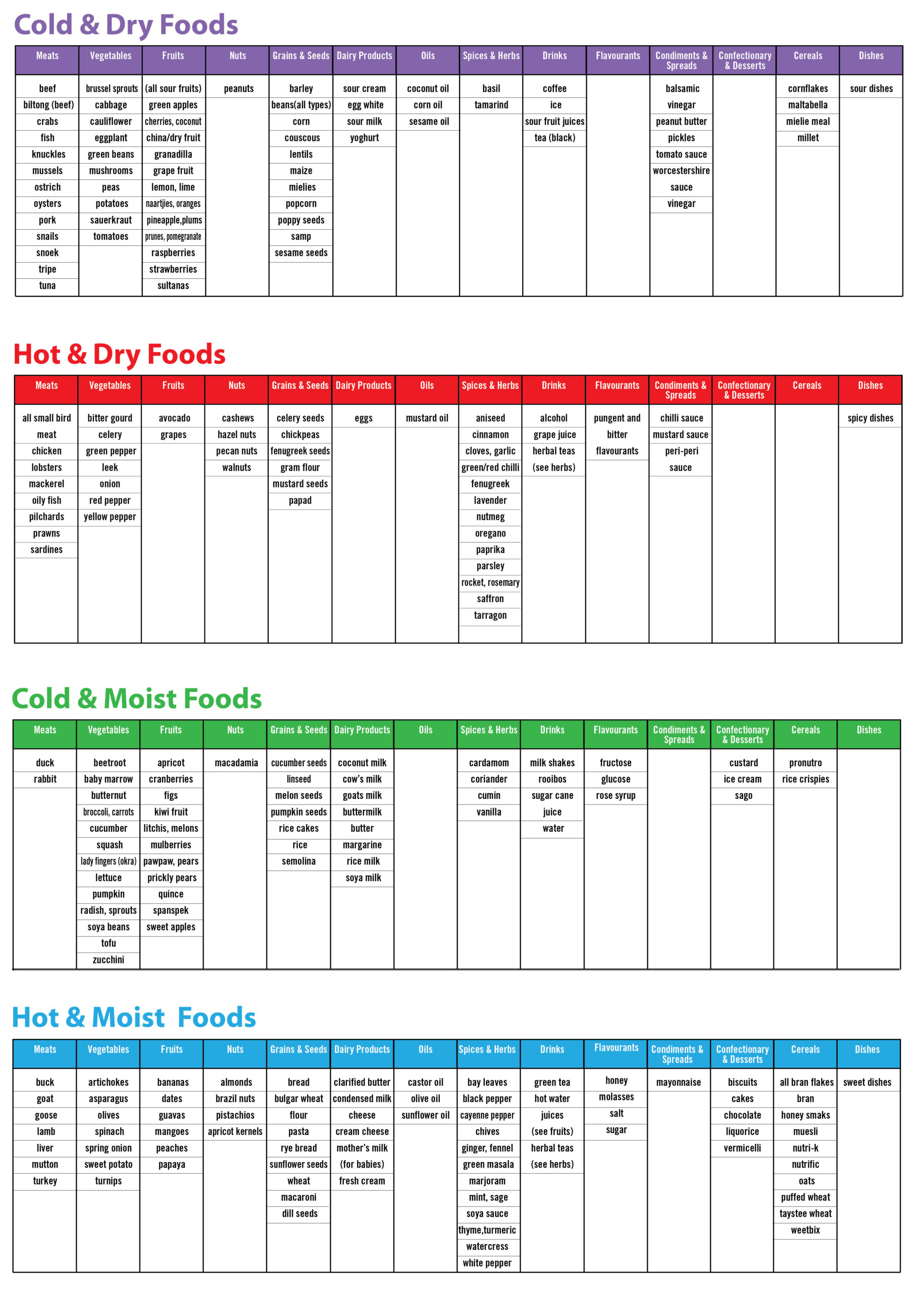
Additional dietary advice:
Environmental Air & Breathing
The Tibb Deep Rhythmic Breathing Exercise
‘O’ shape.
The Tibb Mental/Emotional Breathing Exercise
Tibb Slow and Deep Breathing exercise
Physical Exercise
The Tibb Walking Exercise
Sleep
Emotions & Feelings
The Tibb Slow and Deep Breathing Exercise
The Tibb Heart Meditation
The Tibb Pineal Body Meditation
Elimination
Dominant Bilious sub dominant Sanguinous
Overview
summer anger not enough sleep
Migraine Stress Overactive thyroid Hay fever
High blood pressure Urinary tract infection Rheumatoid arthritis Pre-menstrual tension. Health Maintenance through the Lifestyle Factors of Tibb
Food and Drink

Additional dietary advice:
Environmental Air & Breathing
The Tibb Deep Rhythmic Breathing Exercise
The Tibb Mental/Emotional Breathing Exercise
The Tibb Slow and Deep Breathing Exercise
Physical Exercise
The Tibb Walking Exercise
Sleep
Emotions & Feelings
The Tibb Slow and Deep Breathing Exercise
The Tibb Heart Meditation
The Tibb Pineal Body Meditation
Overview
summer anger not enough sleep
Migraine Stress Overactive thyroid Hay fever
High blood pressure Urinary tract infection Rheumatoid arthritis Pre-menstrual tension. Health Maintenance through the Lifestyle Factors of Tibb
Food and Drink
Additional dietary advice:
Environmental Air & Breathing
The Tibb Deep Rhythmic Breathing Exercise
The Tibb Mental/Emotional Breathing Exercise
The Tibb Slow and Deep Breathing Exercise
Physical Exercise
The Tibb Walking Exercise
Sleep
Emotions & Feelings
The Tibb Slow and Deep Breathing Exercise
The Tibb Heart Meditation
The Tibb Pineal Body Meditation
Elimination
Elimination
Dominant Sanguinous sub dominant Phlegmatic
Overview
Rainy season humid environmental and weather excessive sleep and rest depression and fear lack of exercise Hot and moist to cold and moist food & drink
Congestive headache High blood pressure Diabetes Urinary tract infection Rheumatoid arthritis Pre-menstrual tension.
Asthma (Phlegmatic) Colds & Flu Sinusitis Anaemia Underactive thyroid Polycystic ovarian syndrome Health Maintenance through the Lifestyle Factors of Tibb
Food and Drink

Additional dietary advice:
Preferably drink liquids half an hour before meals OR 1 hour after meals.
Environmental Air & Breathing
The Tibb Deep Rhythmic Breathing Exercise
The Tibb Mental/Emotional Breathing Exercise
The Tibb Slow and Deep Breathing Exercise
Physical Exercise
The Tibb Walking Exercise
The Tibb Jogging Exercise
Sleep
Emotions & Feelings
The Tibb Slow and Deep Breathing Exercise
The Tibb Heart Meditation
The Tibb Pineal Body Meditation
Elimination
Dominant Phlegmatic sub dominant Sanguinous
Early winter cold environment Rainy season humid environment and weather Cold and moist food and drink depression and fear Excessive sleep and rest lack of exercise
Asthma (Phlegmatic) Colds & Flu Sinusitis Anaemia Underactive thyroid Polycystic ovarian syndrome
Congestive headache High blood pressure Diabetes Urinary tract infection Rheumatoid arthritis Pre-menstrual tension. Health Maintenance through the Lifestyle Factors of Tibb
Food and Drink

Additional dietary advice:
Preferably drink liquids half an hour before meals OR 1 hour after meals.
Environmental Air & Breathing
The Tibb Deep Rhythmic Breathing Exercise
The Tibb Mental/Emotional Breathing Exercise
The Tibb Fast and Deep Breathing Exercise
Physical Exercise
The Tibb Jogging Exercise
Sleep
Emotions & Feelings
The Tibb Slow and Deep Breathing Exercise
The Tibb Heart Meditation
The Tibb Pineal Body Meditation
Elimination
Dominant Phlegmatic sub dominant Melancholic
Overview
Early or late winter cold environment Rainy season cold and moist food and drink depression and fear excessive sleep and rest grief irregular elimination of waste lack of exercise irregular eating and sleeping habits
Asthma (Phlegmatic) Colds & Flu Sinusitis Anaemia Underactive thyroid Polycystic ovarian syndrome
Insomnia Osteo-arthritis Hyperacidity Constipation Muscle aches/spasms Flatulence Health Maintenance through the Lifestyle Factors of Tibb
Food and Drink

Additional dietary advice:
Environmental Air & Breathing
The Tibb Deep Rhythmic Breathing Exercise
The Tibb Mental/Emotional Breathing Exercise
The Tibb Fast and Deep Breathing Exercise
Physical Exercise
The Tibb Jogging Exercise
Sleep
Emotions & Feelings
The Tibb Slow and Deep Breathing Exercise
The Tibb Heart Meditation
The Tibb Pineal Body Meditation
Elimination
Dominant Sanguinous sub dominant Bilious
Overview
summer very hot weather humid environment/weather hot and moist to hot and dry food and drink anger strenuous exercises not enough sleep
Congestive headache High blood pressure Diabetes Urinary tract infection Rheumatoid arthritis Pre-menstrual tension.
Migraine Stress Bronchitis Overactive thyroid Hay fever Endometriosis Health Maintenance through the Lifestyle Factors of Tibb
Food and Drink

Additional dietary advice:
Environmental Air & Breathing
The Tibb Slow and Deep Breathing Exercise
The Tibb Deep Rhythmic Breathing Exercise
The Tibb Mental/Emotional Breathing Exercise
Physical Exercise
The Tibb Walking Exercise
The Tibb Jogging Exercise
Sleep
Emotions & Feelings
The Tibb Slow and Deep Breathing Exercise
The Tibb Heart Meditation
The Tibb Pineal Body Meditation
Elimination
Dominant Melancholic sub dominant Phlegmatic
Overview
Early or late winter cold environment Rainy season cold and moist food and drink depression and fear excessive sleep and rest grief irregular elimination of waste lack of exercise irregular eating and sleeping habits
Insomnia Osteo-arthritis Hyperacidity Constipation Muscle aches/spasms Flatulence
Asthma (Phlegmatic) Colds & Flu Sinusitis Anaemia Underactive thyroid Polycystic ovarian syndrome Health Maintenance through the Lifestyle Factors of Tibb
Food and Drink

Additional dietary advice:
Environmental Air & Breathing
The Tibb Deep Rhythmic Breathing Exercise
The Tibb Mental/Emotional Breathing Exercise
The Tibb Fast and Deep Breathing Exercise
Physical Exercise
The Tibb Jogging Exercise
Sleep
Emotions & Feelings
The Tibb Slow and Deep Breathing Exercise
The Tibb Heart Meditation
The Tibb Pineal Body Meditation
Elimination
Dominant Melancholic sub dominant Bilious
Overview
Late winter very hot weather and environment anger dry food and drink strenuous exercise grief irregular eating and sleeping habits excessive wakening irregular elimination of wastes
Insomnia Osteo-arthritis Hyperacidity Constipation Muscle aches/spasms Flatulence
Migraine Stress Bronchitis Overactive thyroid Hay fever Endometriosis Health Maintenance through the Lifestyle Factors of Tibb
Food and Drink

Additional dietary advice:
Environmental Air & Breathing
The Tibb Deep Rhythmic Breathing Exercise
The Tibb Mental/Emotional Breathing Exercise
The Tibb Fast and Deep Breathing Exercise
Physical Exercise
The Tibb Jogging Exercise
Sleep
Emotions & Feelings
The Tibb Slow and Deep Breathing Exercise
The Tibb Heart Meditation
The Tibb Pineal Body Meditation
Elimination
Tibb Online Interview
R180
Please note that booking dates and times are in Local South African Time and are subject to availability. Once a booking is made, we will be in touch to confirm or reschedule a booking as required. Please refer to our consent page before booking – Tibb Online Interview Consent•
*Patient consent to the ‘Tibb Online Interview’ at the Tibb Treatment Centre –
I have read and understand the information provided regarding the ‘Tibb Online Interview’ and therefore, by booking, I hereby give my consent for the ‘Tibb Online Interview’.
